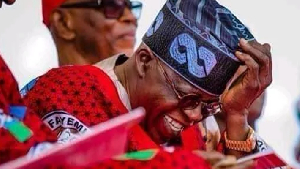Nigeria’s Debt Management Office (DMO) revealed that it expects the Nigerian government to witness improvements in revenues from the work of the Committee on Revenues set up by the president.
They added the removal of subsidy on Premium Motor Spirit (PMS) and the unification of the Naira exchange rates has yielded immediate benefits but has also created some pains which the government is trying to alleviate, particularly for the most vulnerable in the society.
This was disclosed in a statement by the DMO, Director-General, Patience Oniha, after a one-day technical roundtable on “Economic Blueprint for President Bola Tinubu’s administration” in Abuja.
Revenue drive
Oniha, stated that the recent policies by the Federal Government to focus more on revenue generation are the right steps that reduce the country’s debt burden, adding that recent quick actions to bring revenue to the fore by the present administration were steps in the right direction.
“We cannot discuss growth, development, or debt without giving due consideration to revenue. It is now imperative that we confront revenues and take decisive actions to further strengthen our revenue streams from all sources.
“We expect to see improvements in revenues from the work of the Committee on Revenues set up by the president.
“We have also witnessed the implementation of some aspects of the government’s economic plan such as the removal of subsidy on Premium Motor Spirit (PMS) and the unification of the Naira exchange rates.
Benefits
The DMO boss added that the implementation of the recent reforms has yielded immediate benefits but has also created some pains which the government is trying to alleviate, particularly for the most vulnerable in society.
She noted that it was essential to recognise that the situation of the economy needed critical and urgent attention to avoid a deterioration in major economic and social indices, adding:
“Over the past few years, the economy had been the subject of intense debates with suggestions from many experts and analysts on what the government should or should not do to remedy the situation.
“In this pursuit, we must aim for a development model that leads to increased employment opportunities and higher income levels.
“Low growth with high unemployment levels are insufficient to achieve sustainable growth that aligns with our collective aspirations,” she said.
Debt and subsidy
Oniha also cited that despite Nigeria’s growing debt Stock it was important to understand the reasons behind this growth, citing that Subsidies are an expenditure item in the budget, thus invariably, they contribute to the budget deficits.
“On the other hand, the Naira exchange rates used for the budgets are the official rates, which we all know are much lower than the open market rates, the effect of which is lower revenue.
“Overall, these two policy stances that were maintained over many years contributed to consecutive budget deficits which were financed by an average of 90 per cent through borrowings.
“For instance, the size of the 2023 budget is about N21 trillion with a deficit of N11 trillion to be financed by new borrowing of more than N9 trillion,”.
She added the reversal of these policies has resulted in much higher revenues for all tiers of government, citing that the funds distributed by the Federal Accounts Allocation Committee (FAAC) were more than N907 billion and N1.959 trillion respectively, compared to between N500 billion and N750 billion previously.
Debt service
The DMO Chief also mentioned that as the debt stock continued to grow due primarily to consecutive budget deficits, it unavoidably resulted in an increase in debt service obligations.
“Currently, debt service consumes a significant portion of our revenues, not necessarily because debt stock is high but because revenue is low and worse still, underperforms the targets in the budgets.
“It is pertinent to state that Nigeria’s debt stock to GDP ratio at below 25 per cent is among the lowest globally.
“While Debt Service to revenue ratio, which in 2022 reached 100 per cent, is relatively high and reduces the fiscal space available to the government.
“This indicates that the issue lies with our revenue. Unfortunately, the focus on revenue improvement previously did not change the outcomes significantly.”
Business News of Thursday, 27 July 2023
Source: www.nairametrics.com













